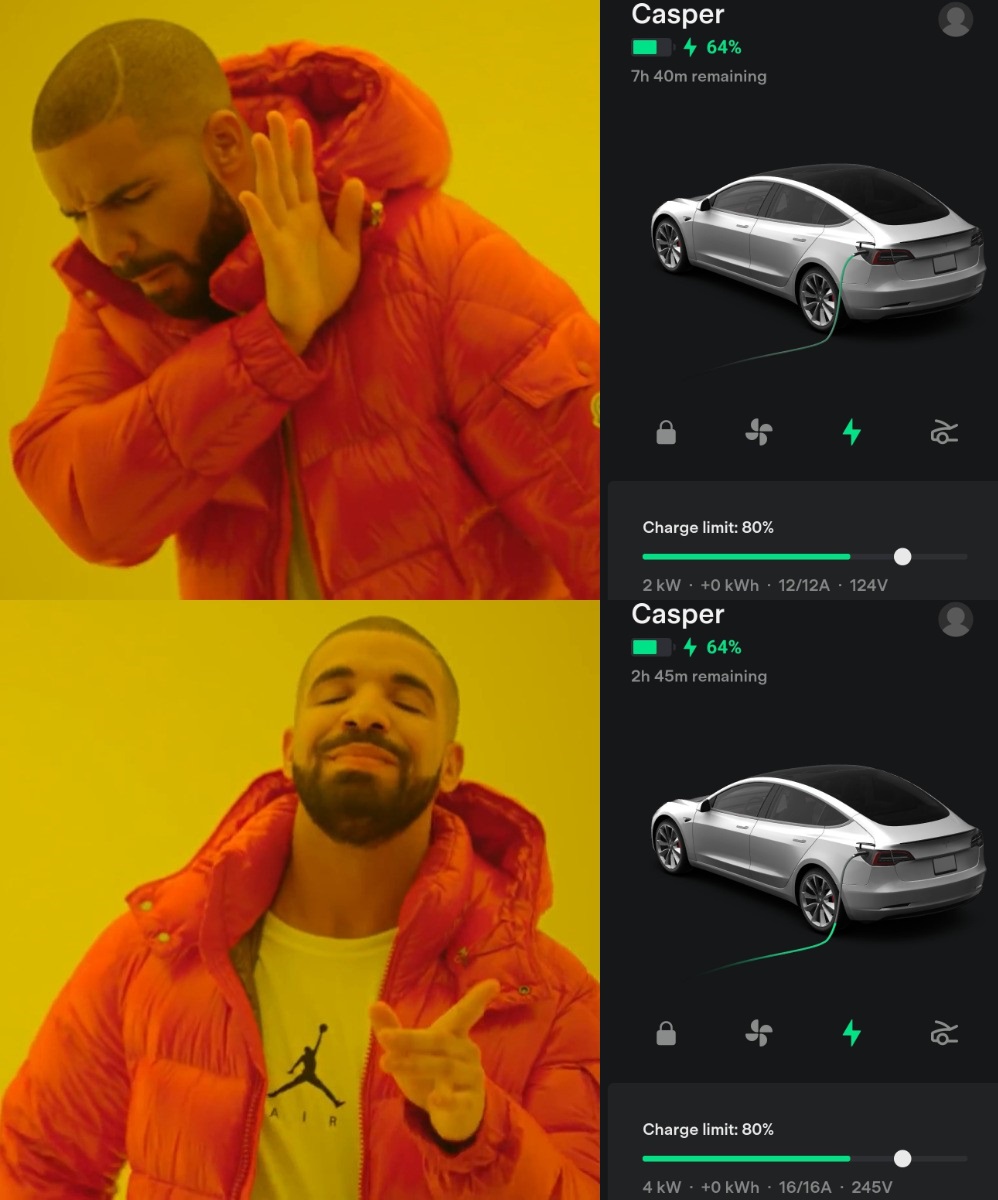I think it's fair to say every car is different. I charged my Model 3 to 90% every evening at 8pm for the first 3.5 years and it stayed plugged in at 90% when I wasn't using it. (For the remaining 4 months of ownership I charged to 80%). I put about 30k miles on the car including about 12k miles in each of the first two years. Despite charging to 90% my car had no degradation for the first 18 months or so and even after almost 4 years my degradation was a little less than 8%. I actually thought that was bad until I started reading this forum in December.
Not sure why my car apparently did so much better than others are reporting. I never preconditioned or took any other of the steps being recommended here.
When researcher perform tests om batteries, they seem to behave
very similar.
After reading and comparing at least 50 different research reports(never counted, but at least 50), Im positive that degradation is predictable within quite small margins if one have the data for a specific battery. Many test reports have the spread between individual batteries that was put into the exact same test. The differences between individual cells are small and if different research graphs is put on top of each other the pictures is quite clear. Lithium batteries that is used within the approved working range behave predictable.
Calendar aging is higher initially and reduces with square root of time.
No degradation in your first year, I take that as there was no reduction of range?
There is a degradation threshold at about 76kWh(for LR/P 2018/19 I think) so you could have lost about 2% without noticing any reduced range.
I also guess you see a reduction in range of 8% now, after four years? This would put the total degradation to about 10% as the two first percent can not be seen in range reduction.
If you have 10% after four years( with the same usage/charging etc) you propably had about 10 / (square root of four years) = 5% after the first year. (IRL theres also a cyclic shing but thst part is not very big if your car havent done many miles with deep cycles, so we can disregard that for simplicity)
The wording here on TMC is that degradation (on screen) happens in chunks, and my guess is that your BMS didnt follow the real degradstion exactly but instead made the best approximation it could do, temporary showing slightly higher range than the actual capacity would allow.
I still have full range, after 32000km, but first there is a degradation threshold about 1.5kWh below the new capacity, and also my charging schedule offset the BMS by little, and my car is hovering around the first step of showing degradation( I know this from reading the capacity with Scan My Tesla).
My own calculations( made about when I did get the car, predicted that the degradation would be around 2.5-3% after one year, which was three weeks back. That should put me at 79.5-80kWh nominal capacity. I have seen 80.4 steady for the last time, and had 80.2 the other day. I guess my steady value will creep down, and a range reduction will be seen soon. My prediction is 79.0 kWh in the middle of the summer.
( I will start driving much longer with deeper cycles but only about once a month so it probably do not change my degradation very much.)
That said, I think your degradation will be much less in the future. It most probably was more than you could see initially and it probably follows the square root of time.
After eight years you probably are around 14%( if my guess about the range was the reference), if 8% now you’ll see about 11-12% after eight years. All this if continuing to use the same charging schedule etc.



